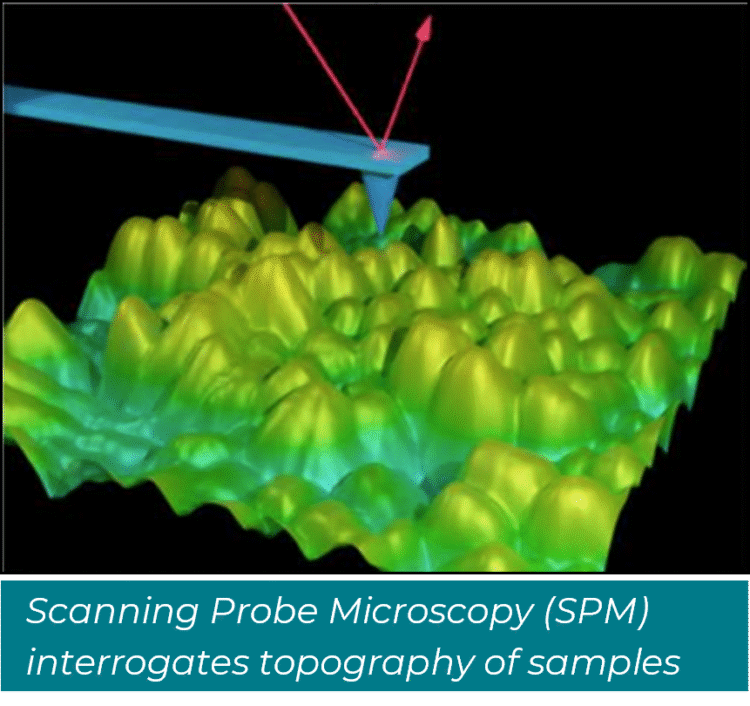Reward Driven Optimization: Scanning Probe Microscopy - Imaging & Spectroscopy
The Problem
Scanning Probe Microscopy (SPM) is a branch of microscopy which gives unprecedented insight of the nanoworld. These microscopes provide atomic resolution and operate in many advanced imaging modes. In order to obtain high quality imaging data, the microscope must be tuned across a large parameter space. This process is incredibly challenging and time-consuming for inexperienced users. Human-driven optimization also adds bias into the data analysis.
The Solution
Researchers at the University of Tennessee have developed a reward-driven workflow to optimize Scanning Probe Microscopy (SPM). The reward function can be defined for multiple modes and enables sample agnostic optimization for high quality data. These workflows find optimal parameters for a wide variety of samples and SPM probe types. This function is the first step for automation of SPM techniques. Automation of optimization increases image quality and eliminates operator bias and reproducibility issues for new users. Using a small initial knowledge base optimization is carried out without supervision and fear of sample/probe damage.

Benefits
| Benefit |
|---|
| Automated optimization enables new users to obtain high-quality images |
| Workflows can optimize microscope modes in parallel |
| Consistent image quality and reproducibility |
| Operators spend more time analyzing and interpreting data |
More Information
- Derek Eitzmann
- Assistant Technology Manager
- 865-974-1882 | deitzman@tennessee.edu
- UTRF Reference ID: 25102
- Patent Status:

Innovators
Sergei Kalinin

Weston Fulton Chair Professor of Materials Science and Engineering University of Tennessee, Knoxville
Dr. Kalinin received his Ph.D. in Materials Science and Engineering from the University of Pennsylvania. His research interests include atom by atom fabrication, application of machine learning and artificial intelligence in atomically resolved and mesoscopic imaging to guide the development of advanced materials for energy and information technologies, as well as coupling between electromechanical, electrical, and transport phenomena on the nanoscale. He has published more than 500 peer-reviewed journal papers, edited 4 books, and holds more than 10 patents. He is also a member of editorial boards for several international journals, including Nanotechnology, Journal of Applied Physics/Applied Physics Letters, and recently established Nature Partner Journal Computational Materials.
Read more about Sergei Kalinin